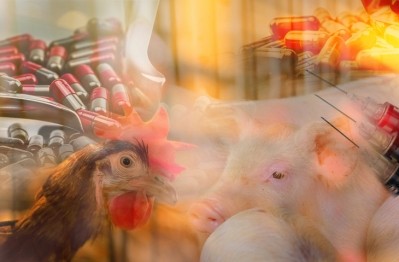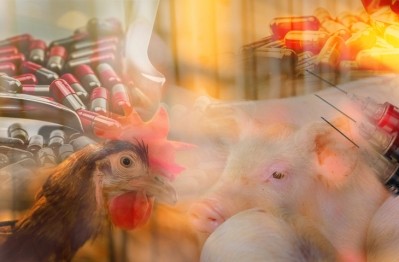Global poultry industry takes stand against antimicrobial resistance

A cornerstone of the US Agency of International Development (USAID)’s Transformational Strategies for Farm Output Risk Mitigation (TRANSFORM) project led by Cargill, the antimicrobial use stewardship principles were developed by the International Poultry Council to drive global change throughout the animal agriculture industry.
The principles comprise of actions to avoid the need to use, but when needed, ensure proper use of antimicrobials.
With this addition, over 40% of global poultry meat production is now committed to these science-based principles.
Antimicrobial resistance (AMR) is a global issue requiring a global response to keep antibiotics effective for treating diseases in animals and humans, said Annie Kneedler, chief of party, TRANSFORM, an initiative that works directly with farmers and also looks to unite the poultry industry in terms of antimicrobial use reduction.
“We cannot effectively combat antimicrobial resistance without active participation from the private sector as action happens at the farm level. We know antimicrobial stewardship is good business. When animals are healthy, the cost of veterinary care to treat disease decreases, animal mortality decreases and farm productivity increases.
"When businesses see the impact of antimicrobial stewardship to their bottom lines, we’ll all benefit from strengthened global health security,” she told FeedNavigator.
New supporters
The new supporters include the Association of Poultry Processors and Poultry Trade in the EU Countries (AVEC), Baromfi Termék Tanács (BTT) from Hungary, Bundesverband der Geflügelschlachtereien (BVG) from Germany, Fédération des Industries Avicoles (FIA) from France, Krajowa Rada Drobiarstwa – Izba Gospodarcza from Poland, Vereniging van de Nederlandse Pluimveeverwerkende Industrie (NEPLUVI) from the Netherlands, and Yum! Brands.
These organizations join 19 others already on board, such as McDonald’s, Tyson Foods, and the Brazilian Association of Animal Protein (ABPA).
“The 26 organizations that have endorsed or adopted the antimicrobial use stewardship principles have demonstrated tremendous leadership in helping combat antimicrobial resistance. From global foodservice operators to regional poultry associations, each organization that supports these principles is motivating their members, suppliers, and partners to improve animal health to reduce the need to use antimicrobials.
"The farm level actions include farm management practices around biosecurity, nutrition and animal care, all practices that improve flock health and productivity,” remarked Kneedler.
Antimicrobial Use Stewardship Principles
The stewardship principles developed by the IPC focus on a risk-based approach to antimicrobial use, scrutinizing why, when, which, and how much is used. They also emphasize farm management practices that enhance animal health and minimize the need for antimicrobials, strict adherence to national antimicrobial use regulations, and ensuring antimicrobials critical for human medicine are used only under veterinary supervision.
Farm management training
The TRANSFORM project aims to create lasting change in animal health practices, focusing on holistic nutrition, antimicrobial use stewardship, and economic sustainability. It operates projects in Kenya, India, and Vietnam.
“We partner with large integrated poultry producers to provide biosecurity and farm management training to their farmer suppliers. We also provide training to community agrovet entrepreneurs who can reach smallholder farmers with these best practices that both improve animal health and decrease disease threats.
"We work with financial organizations in India and Kenya to develop or expand financial products and services to provide farmers with the financial capital needed to make biosecurity improvements,” explained Kneedler.
So, a multi-faceted approach to improving animal health to reduce the need to use antimicrobials.
She outlined how TRANSFORM, since its inception in 2021, has provided biosecurity and farm management training to 80,000 farmers and reached one million individuals with targeted, timely and relevant communications campaigns.
“Following the training, 51% of farmers adopted at least one new practice, 96% of farmers reported reduced animal mortality and 32% of farmers reported an increase in income."
The initiative has also developed a research portfolio that includes over 20 studies to understand how nutrition interventions can improve animal health and reduce disease threats, she added.








